
The aging process isn't something most people like to think about. But that's a counterproductive attitude. Understanding how the body changes as we age can help us make the right decisions to live longer, happier, and healthier. These are 16 things that happen to your body as you age, according to experts.

"As many of us know too well, our metabolism slows with age," says Dr. Sergio Alvarez, medical director of Mia Aesthetics in Miami. "Along with the hormonal changes that our bodies undergo, this often leads to packing on a few unwanted pounds. This is particularly true for women, as menopause encourages the body to shift fat stores to the stomach while encouraging new fat deposits to rest there as well."
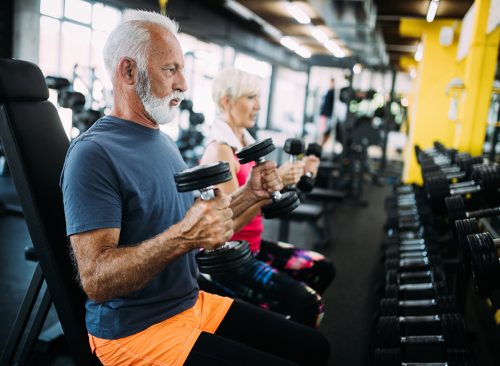
"Muscles tend to lose strength and endurance as well, so you may experience more muscle pain while being able to work and exert yourself only for short time periods," says Alvarez. "The right exercise program can counter muscle weakness and keep your joints moving, as doctors now know that 'motion is lotion,' and keeping yourself going is one of the best ways to combat pain."
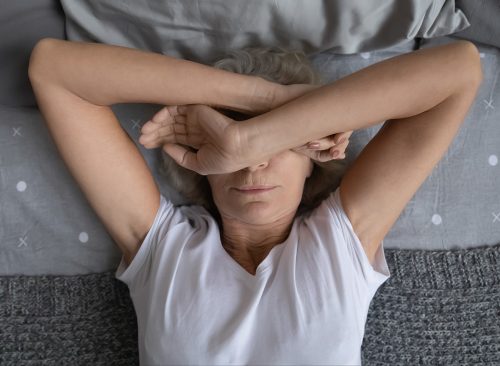
"There is a natural decline in sleep quality as we age," says Dan Ford, a sleep psychologist and clinical director of the Better Sleep Clinic. "This generally results in more awakenings during the night, decreases in deep sleep, and possibly less demand for sleep from the body. We suggest paying attention to unhelpful sleep habits, especially alcohol (it fragments sleep and increases fatigue) and putting more effort into trying to get more sleep." Regular exercise and consulting with a doctor can help.

"Some people feel their confidence increase as internalized experiences from young adulthood help them succeed in unexpected and new ways," says Dr. Katie Hill, a board-certified psychiatrist specializing in aging and CMO of Nudj Health. "Others begin to contemplate their values, prior experiences, transitioning responsibilities, and want to create change to have a more meaningful life. 'Midlife crisis' often has a negative connotation, but it really shouldn't!"
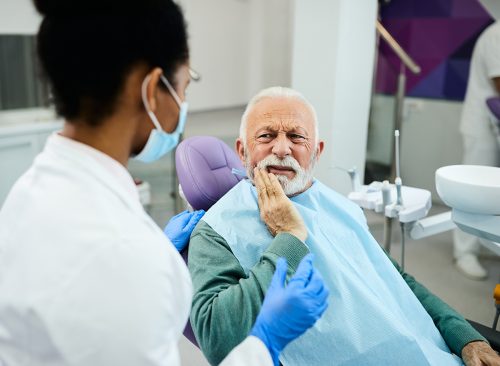
"Older adults might face receding gums, increased tooth sensitivity, and dry mouth due to medications," says dentist Dr. Jennifer Silver. "I recommend opting for a soft-bristle toothbrush and using fluoride toothpaste. Consider artificial saliva products if dry mouth is a concern. Regular dental check-ups are vital for detecting and addressing issues early."
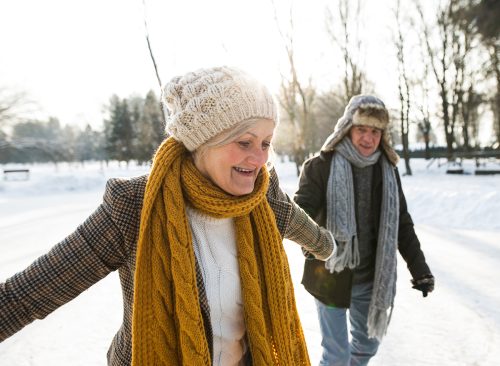
"As you age, your body's ability to regulate temperature becomes less efficient due to decreased sweat production and blood vessel responsiveness," says Silver. "This can make you more susceptible to heatstroke in hot weather and cold-related illnesses in winter. I suggest paying close attention to weather forecasts and dressing accordingly. Hydration is crucial to help your body cope with temperature changes. Consider adopting cooling strategies like fans and cooling vests in hot weather and layering clothing in the cold."

"The gut microbiome, a complex community of microorganisms in your digestive system, undergoes changes with age, which can affect nutrient absorption and overall health," says Silver. "In addition to consuming probiotics and prebiotics, explore fermented foods like kefir and kimchi to support a diverse gut microbiome." It's also a good idea to check in with a registered dietitian for personalized guidance.
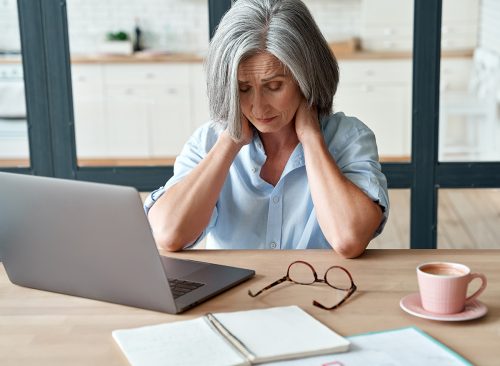
"As we age, our bodies may start to feel more aches and pains than usual," says board-certified bariatric surgeon Dr. Rene Armenta. "This is due to the natural wear and tear associated with age. Maybe a certain joint or muscle will start to act up more often, or you may just find that your body is a bit stiffer and slower in certain movements. While this is normal, it's still important to take care of your body and get regular checkups with your physician. Staying active and stretching can help keep these pains in check and prevent any injury from occurring. It's also important to make sure you're getting enough sleep to give your body time to rest and recover."
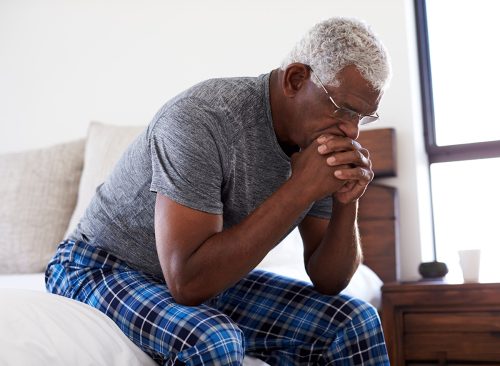
"It's very important to pay attention to your mental health as you age," says Armenta. "As we get older, our list of responsibilities and commitments will pile up, which can be a great source of stress and anxiety. If left unchecked, this can cause a host of health problems, so it's important to take time for yourself and practice self-care. Taking regular breaks, setting boundaries with work, and taking up activities that bring you joy are all essential components of maintaining a healthy mental state."
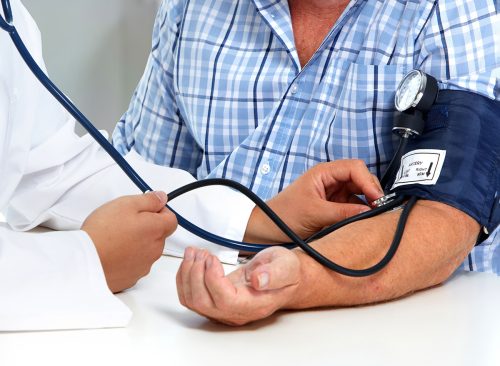
"Many people also experience high blood pressure as they age since the arteries start to stiffen, forcing the heart to work harder to circulate the blood," says Alvarez.
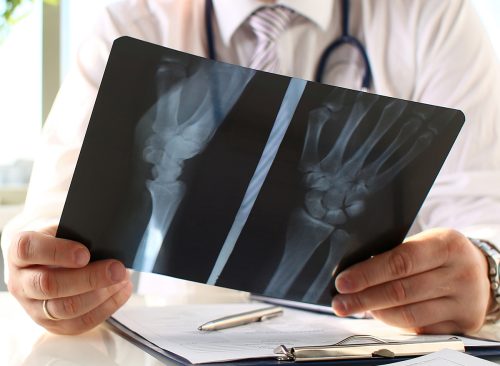
"While your arteries may stiffen as you age, your bones will become weaker, increasing your risk for fractures," says Alvarez. "A good diet rich in calcium can help you keep your bones stronger."
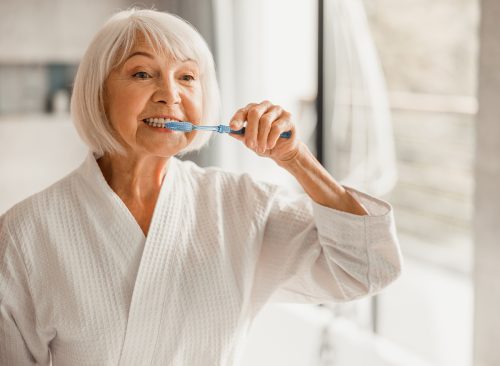
"Your teeth shift when approaching your middle age and beyond," says Dr. Nadia Rodriguez, a New York City-based dentist. "This happens because your jaw still continues to grow, creating less space for your lower front teeth, which leads to crowding. Did you know that starting at age 35 you lose about 1% of the collage and fat in your face a year? Your cheeks begin to flatten out and your face looks slimmer. Your upper lip loses support causing you to see less of your upper teeth and more of your lower teeth. The loss of facial collagen and fat also places pressure on your teeth, causing crowding of your teeth too. Don't despair though! A simple way to prevent your teeth from moving as you age is to wear a retainer every night. Retainers don't last forever, so be sure to speak to your dentist about how often you should have it replaced.
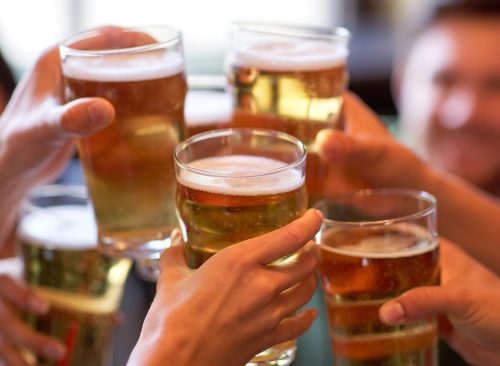
"Alcohol has more of an impact on your physical and mental health than when you were younger," says registered dietitian nutritionist Kathryn Piper, RDN, LD. "You dehydrate easier, your organs weaken quicker, your brain cells shrink, and you get sick more easily. In addition, alcohol can make common medical conditions worse. Alcohol can also interact with medications and can increase your risk of falls. Minimizing alcohol and stimulants is a great way to focus on healthy aging."

"A wonderful part of middle age is that most people have more autonomy and ability to make change than at earlier life stages," says Hill. "Leading a values-driven life can be more satisfying and allow for better health and longevity. If there is an area someone wants to improve, create a small goal and work toward it. Achieve it and make a new goal."

"As we age, our need for protein increases. However, many people don't account for this and are therefore drastically deficient in protein," says Dan Gallagher, RD, a registered dietitian with Aegle Nutrition. "This causes mobility problems as your muscles get weaker and you end up with a high risk for broken bones. Stronger muscles will help protect your bones and improve your balance. The more you can prioritize protein, as well as continuing with a strength training program as you age, the better off you'll be.
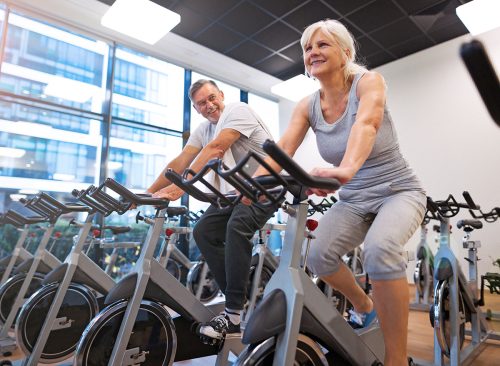
"Decreased physical activity and poor diet choices are responsible for much of the development of chronic disease and resulting lower quality of life as we age. However, this does not need to happen," says Hill. "Significant research suggests aging can be reversed with lifestyle changes such as exercising, learning how to approach challenges positively, improving diet, and increasing social connectedness. For many people, getting started with making these changes can feel overwhelming, but with a good support system, the benefits can be truly life-changing."














